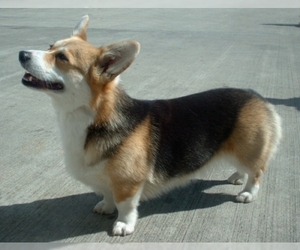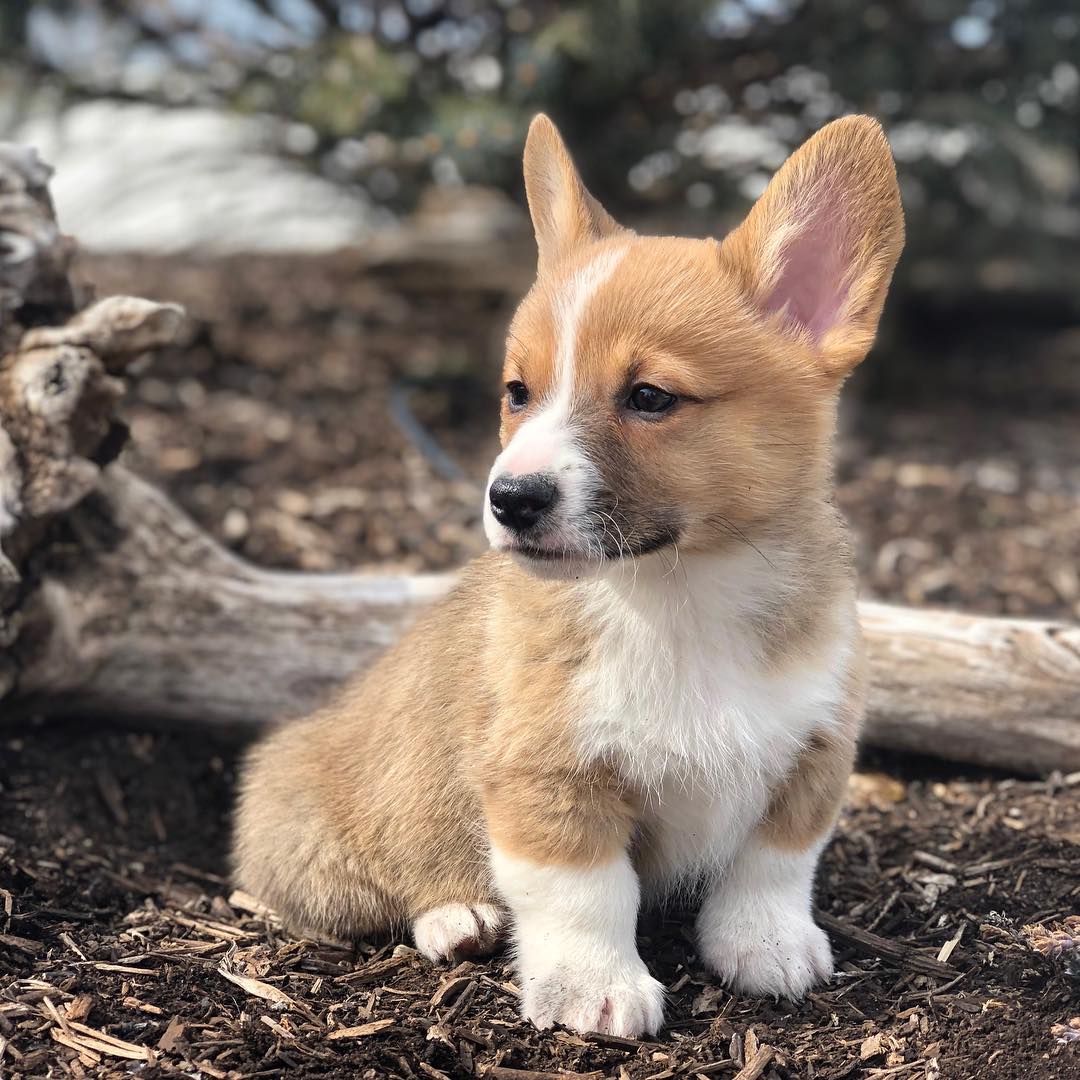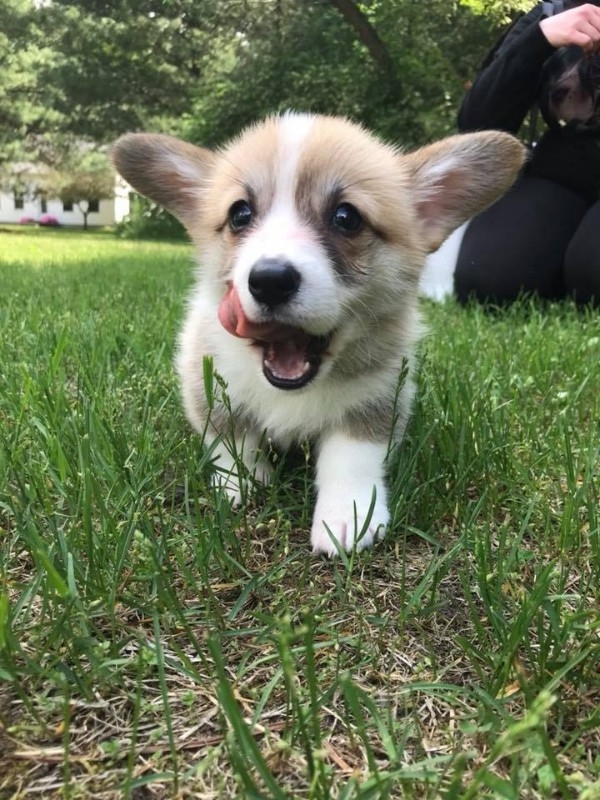Dr. Tyler Thomas and Denise Kindrix get a dog health certified for travel.(Photo: Mindy Sanders Diffenderfer)
CONNECTTWEETLINKEDINCOMMENTEMAILMOREThere has to be a special place in the afterlife for folks who provide care and sanctuary for lost, abandoned or mistreated dogs.
The time and energy these individuals spend to transport animals to new homes, open their own homes to foster dogs and save others from abuse or neglect translates into a new life for many local rescue dogs.
This month, in recognition of the American Red Cross' National Pet First Aid Month, we're highlighting the work of local dog saints.
COMMUNITY: Local lady has found thousands of four-leaf clovers
Mindy Sanders DiffenderferWalking in the Sun Rescue
Q: How did you get started in rescue?
MD: I’ve always been an animal lover, but when we moved to Morehouse Parish 24 years ago, I became aware of the number of dogs wandering around that seemed to be either lost or abandoned. I would occasionally pick up a stray, put an ad in to attempt to find the owner, find a home or as a last resort, take it to the shelter. My son did some community service work at the Bastrop Shelter as a part of his high school activities, and I would occasionally go with him on Sundays. We did whatever needed to be done, from cleaning out the cat building to cleaning out the puppy house to walking and exercising the older dogs. When he completed his community service hours, I kept going. A couple of years later, I was president of the board.
Shorty ,a mixed breed, is on his way to Jackson Miss. for the first leg of his journey to Missouri. (Photo: Mindy Sanders Diffenderfer)
Q: What breed of dog you do you have?
MD: My first real foster dog was Belle, my lab. I brought her home from the shelter because I felt sorry for her. She had 12 puppies at the shelter, and they all died. But she was still in the puppy house for lack of space with the adult dogs, so I brought her home! That was about eight years ago, and she’s almost 11 years old now.
Q: How does your program work?
MD: At some point in my shelter volunteering, I realized that, since the Bastrop Shelter is only open to dogs and cats — which are picked up by animal control within the city limits — a program was needed to work with the animals out in the parish. The parish doesn’t have a shelter, but most animals were dumped on the back roads of the parish and not in the City Park or environs. In 2013, I, along with a couple of fellow animal lovers filed the paperwork to become a 501 (c) (3) non-profit organization, under the name, Walking in the Sun Rescue. The group became “official” in September of that year. That year, we rescued around 50 dogs. Three years later, we rescued 290 dogs and 54 cats. Not all come from Morehouse Parish. We also take in animals from other small parishes. We have also begun working with the Bastrop Shelter to get dogs out when we can.
Q: How can locals assist?
MD: Food is important, and monetary donations are always welcome and judiciously spent, but the thing we need most is foster volunteers. They are critical to our mission. They provide love, food and a safe place for the animals to live as they learn how to be family members and frequently need to recover from illnesses and get healthy again after a rough life. We have nine volunteers, but there are four of us, including three board members, who always have a foster: Dianna Blake, a nurse; Jane Hynum, a teacher; and Debbie Havard, who lives in West Monroe.
Q: How can people get more information on your organization?
Mindy Sanders Diffenderfer loads her vehicle to meet another rescue group to pass along these dogs. "Relationships with other rescues are key to helping with placement," she said. (Photo: Mindy Sanders Diffenderfer)
Facebook: Walking In the Sun Rescue
Telephone: 318-235-4494
MUST-READ: 'Meet Monroe's 'animal whisperer'
Kathy Powell (left) and Cinnamon Grant (right) enjoy some time on the Bayou DeSiard with Brock, who was rescued from the Bossier City Animal Control. (Photo: Cindy Ingram)
Cinnamon Grant, Kathy PowellBayou Bully Rescue
Q: How did you two get started in rescue?
CG: For my 13th birthday, my parents adopted a little black puppy for me from Monroe Humane Society. We thought we were getting a little black lab, but as he grew we knew he wasn't what we were physically expecting. He was a pit-bull mix. Intellectually, he was an all star. He was so smart that he learned hand commands from me one night with only 10 pieces of chicken nuggets as a reward. And we were inseparable. He was with me through my first car and first boyfriend. Despite what I had heard and conventional wisdom, I really learned to appreciate this breed. Fast forward to 2013 when I was pulling a German Shepherd off the Ouachita Parish Animal Shelter kill list for a breed rescue to transport to East Texas. As I was finishing the paperwork, one of the shelter workers catch poled this tan-and-white pit. I asked where he was taking the dog, and he said that he was taking him “to the back.” I then asked “to kill him?” and he reluctantly said “yes.” At that point my emotions overcame my common sense and took the catch pole out of the guys hand and said “you’re not taking him.” He looked at me all dumbfounded, stumbled over a few words and quickly walked off. So I sat on the wet cold floor holding this dog and asking myself “what am I doing?” Well, shelter worker No. 2 came limping over saying "ma'am, ma'am, uh you uh can’t take that dog, you can’t have that dog." A few days later and "that dog," by then named Right, (because rescuing him was the right thing to do) was sleeping on my couch. That was the beginning of Bayou Bullies.
KP: At one point, my family had three pit bulls and a rottweiler. They all passed of old age. We went awhile without any dogs because we were just devastated, especially me because I had lost my 15-year-old pit bull named Max. He was my child as I got him when he was only 4 weeks old. I’ve been in love with the breed ever since. Long story short, my brother saw Bayou Bully has some pit bull puppies for adoption. We applied, and when he was old enough, March 2014, we named him Ozzie and brought him home. That’s when I met Cinnamon.
Dexter, a rescue from the (OPAS) Ouachita Parish Animal Shelter, enjoys a run in the sun. (Photo: Cindy Ingram)
Q: What breed of dogs do you have yourself?
CG: I have Bastion, my great dane, and Right, the rescued pit bull. Kathy has Ozzie, an adopted pit bull she got from Bayou Bully as a puppy.
Q: How does your rescue group work?
CG: We’re a little unconventional from most as we do not have a physical place to house the rescued dogs, so we are limited to how many we can save. We rely heavily on our volunteers who foster the dogs until we can place them either locally or out of state. Kathy and I grew into great friends and are total opposites, which works great. She is black and white, and I’m a splattered rainbow. She keeps me straight, and I drive her crazy. She has a background in accounting, so she keeps up with money and the emails, and I run the roads doing what needs to be done, rescues, transports to new homes, vet visits, etc.
Q: How can locals assist?
CG: As with any such group, money is always needed. We have 44 dogs in rescue at any given time. That means each dog needs to be spayed or neutered, each one needs vaccinations, each gets a microchip, and food, lots of food. As I said earlier, we need additional volunteers and could really use up to five board members who are willing to help, especially with fund raising. We are part of the Amazon Smile program, so if someone designates us as their charity, we get a few cents off each of their purchases donated from Amazon. We also have a wishlist on Amazon if anyone would like to donate something from that list. And last, but certainly not least, we are in rather desperate need for additional kennels, for dogs that weigh 30-70 lbs.
Q: How can people get more information on your organization?
CG: Media Nichols Presnell prepares to hit the road in the transport van (Photo: Courtesy Jennifer Nichols Presnell)
Jennifer Nichols PresnellPAWS of NELA
Q: How did you get started in rescue?
JP: I've always had a heart for rescuing animals in need. I brought home strays as a young girl, and my first dog all on my own was a puppy I rescued from a dumpster in college. I became involved with PAWS of NELA in 2007. I had four dogs of my own at the time and knew I couldn't keep adopting every dog I wanted to save. I realized I could make a greater impact by fostering dogs in need.
Q: What breed of dogs do you have yourself?
JP: I have an 11-year-old border collie mix, a 10-year-old black lab mix and a 10-year-old beagle. They are good sports and have welcomed hundreds of fosters dogs into our home over the years.
Q: How does your rescue group work?
JP: The PAWS of NELA Rescue Program was created in 2003 to help animals at our local high kill shelter, the Ouachita Parish Animal Shelter in West Monroe. We save around 200 dogs each year from the OPAS. We work with rescues around the country that help us place our rescue dogs in loving, forever homes. The dogs are fully vetted down here while in foster care. Once healthy, they are adopted to pre-screened, indoor homes. Most of our dogs are adopted to families in the New England states.
Q: How can locals assist?
JP: We need financial donations to our rescue program to pay help for food, assist with vet care expenses etc. But to make our program work and to save as many dogs as we can, we need dedicated local foster homes. Requirements to become a foster: 1. A dog must be fostered indoors and treated as a member of the family, 2. Current pets must be spayed/neutered, current on vaccinations, as well as heartworm & flea preventive and 3. You must live close enough to get your foster dog to/from vet appointments at Cooper Veterinary in West Monroe.
Q: How can people get more information on your organization?
JP: Website: Media Facebook: Media and email is Media Silk Hicks with Butch, an American Bulldog Mix (Photo: Cindy Ingram)
Ellen Silk HicksMonroe Humane Society
Q. How did you get involved in rescue?
EH: I’ve been an animal lover since I was a tot. My mother liked to tell the story about coming home from work and finding me standing in front of the open refrigerator feeding olive loaf to the neighbor’s two dogs and two cats. I think I was 3 and couldn’t understand what the big deal was. And still can’t. They were all being very good and waiting their turn for a piece of the treat. I remember my mom getting a phone call one day from a lady asking if she knew her daughter was chasing a dog down Highway 165? Her reply was "why are you calling me instead of helping her?” I really hadn’t been involved in rescues or animal groups until we moved back from Dallas. In 2004, I started volunteering with the Humane Society Adoption Center in Monroe and got heavily involved. I am now the president of the organization, the “Big Dog” as it were.
Q: How does your group or program work?
EH: Our group, the Monroe Humane Society, which is not affiliated with any national group, may have a few dogs there for adoption; but our main focus is to develop awareness of who we are and what we do. We are a ‘no kill’ shelter and usually house around 55 dogs. We could choose to be ‘no kill’ because we are an independent organization, while the Ouachita Parish Animal Shelter works under different criteria because it is publicly operated. The local rescue groups here are great, and without them we, as a community, would be in really bad shape from an animal overpopulation. And the folks who do the transportation of the dogs are absolutely amazing with what they do and the distance they are able to place the rescued animals. We all are working toward the same goal. It’s a daily fight against ‘black dog syndrome’ to inform and educate people about spaying and neutering their pets, as well as chipping them and keeping collars and tags on them for ID if they are lost.
Q: What kind of dogs you have yourself?
EH: My husband and I both love Corgi’s and had two for quite a while that were our “children”. We are both still grieving their passing and not quite ready to adopt another. I get my “puppy and big dog love” at our facility.
Q: How can locals assist?
As with most of the animal-related organizations, we could not operate without our volunteers. We always need more people to come help us walk the dogs, give them baths or just sit and talk to them, do some loving. We ask that you be over the age of 15 or bring a parent. We are also in need of folks who can’t or don’t want to own a dog due to a variety of circumstances – travel, cost etc. — who can act as a ‘foster parent’ of a dog for short period of time until we can find a ‘fur-ever home’ for them. We supply the vetting, the food and any needs you might have. We welcome monetary donations to help with the food costs and vet bills, but volunteers keep the wheels turning, or keep the tails wagging. We currently have a line of sniff candles that can be purchased at Fiesta Nutrition Center on 18th Street in Monroe with the profits coming to us. Rant note:Social media has become a major part of most of our lives these days. It has been great for returning lost dogs to their owners and finding homes for others. But, the frustrating thing to me is that too often someone will see a dog in distress or in a bad situation, and rather than do something themselves, they call on someone else to do the job. I urge you, if you care about our four-footed friends, get involved.
Q: How can people get more information on your organization?
EH: We are located at 920 Freight Drive, Monroe. It's about ⅓ mile to the left off Construction Avenue, which is off Kansas Lane. website: Media and telephone: 318-287-9553. To view some of our animal, search: Media Hound with Sandra Lunte and Elizabeth Grant-Gibson of All Hounds on Deck. (Photo: Courtesy of All Hounds On Deck)
Sandra Lunte, Elizabeth Grant-GibsonAll Hounds on Deck
Q: How did you two get started in rescue?
EG: Sandy had been doing independent rescue on her own for a couple of years. In the summer of 2012, she became obsessed with catching and rescuing a big old hound that was hanging out around the Farmerville Walmart and living in a ravine across the highway. After a few weeks of early morning stakeouts, with the help of Dr. Damon Odom, she was able to get the hound. He became Major Hound, the hound who started it all. Getting to know Major Hound, who soon became dog No. 3 for Sandy and her husband Tony Cortellini, along with rescues Colby Lou and Jack (a dumpster dog who is now a therapy dog), caused Sandy to fall in love with this funny, friendly breed. In early 2013, I had been doing rescue dog transports for a couple of different organizations and agreed to help Sandy with the hounds. In March 2013, All Hounds on Deck was born. AHOD became an officially registered non-profit with the state of Louisiana, and eventually became a 501(c)3 charitable organization. Since then, AHOD has placed around 100 dogs and puppies and has facilitated rescue and transport for other non-profit rescue organizations.
Q: What type of dogs do you have yourself?
EG: I do not have any dogs of my own. Instead, I have in the past fostered AHOD dogs, anywhere from three to seven dogs at a time, from early 2013 until 2016 when my house was flooded. When I first got involved in fostering through AHOD, I had a cat, Gin, who was the "cat-tester" for our hounds. Sandy and her husband Tony have five dogs: Jack, a cocker spaniel mix who was abandoned at a dumpster and is now a therapy dog certified by Therapy Dogs International (TDI); Major Hound, a large senior, ¾ American foxhound and ¼ treeing walker coonhound and largest foxhound ever, (she did the DNA); Maddie Hound, a senior hound who was a part of AHOD until she was diagnosed with cancer, at which point Sandy and Tony adopted her; Hannah Hound, also a former AHOD dog who suffered from such serious PTSD as a result of her early life that Sandy felt she was unadoptable, so Sandy and Tony adopted her; and Colby Lou, a Chihuahua mix who Tony rescued from outside a church. She had been abandoned when people moved and was living in the bushes of her former house next to the church.
Q: How does your rescue organization work?
EG:The hounds that become part of All Hounds on Deck come from the local kill shelter, from dumpsters, from the streets and from the fields. These hounds have usually been abandoned, probably because they were gun shy. Some have been abused. Nearly all are unhealthy — usually with internal parasites, heartworms, canine ehrlichia (a tick-borne disease) and wounds. Most are emaciated. We work closely with Dr. Damon Odom in Farmerville to get these dogs fully healthy, which often includes surgery, including spay/neuter, and usually includes treating heartworms, one of our greatest expenses. As the dogs are getting healthy, we work to get to know them so that we can make a good match with an adoptive family. We also do some training in basic commands. Once an AHOD rescue dog has an all-clear on heartworms and has been fully assessed, we work to find an adopter. The vast majority of our adoptions come through Facebook. We adopt throughout the continental US and lower Canada. Our adoption process is thorough a preliminary short adoption form, a longer form with references, a telephone interview and a home visit. Because of our process, we are able to find excellent homes for our hounds. Once an adoption is approved, we personally deliver the hound to his or her new home, helping to introduce to new family and any animal siblings and getting the new adoptee settled in. We have delivered dogs from coast to coast, north to south, and we actually have four hounds in Ontario, Canada.
Q: How can locals assist?
EG: Our greatest expense by far is veterinary care. We spend anywhere from $500 to $1,000 on most dogs with several costing us much more because of their extreme health needs. Donations can be made through PayPal to Media or can be called in to Dr Damon Odom's office at (318) 368-0600. In addition, we can use gift cards from Tractor Supply Company, where we buy their store brand grain-free food and gas gift cards to help defray expenses on the road when we deliver dogs. Finally, in terms of practical items, we can always use paper towels, laundry soap, bleach, Odoban disinfectant, dish soap, and Clorox wipes. The problem with these items is that we are virtual, so we don't have a home base where things can be dropped off. So donation of these types of supplies would mean trying to arrange to meet with the donor to receive the items, not a simple matter with Sandy's packed schedule and Elisabeth's travel.
Q: How can people get more information on your organization?
EG: website: Media and via e-mail: Media Lear
Ouachita River Valley Animal League
Alisha Lear and her donkey (Photo: Cindy Ingram)
Q: How did you get started in rescue?
AL:My first rescue is beyond my recall because I come from a family of rescuers. Grandparents and parents, I can remember each of them caring for strays at the back door and 'surprise' litters, which became part of the family. I just never realized the cruelty of humans who abandon animals until Bernie and I moved to the country. We were at a dumpster site one day and I heard crying. Much to my husband's delight, I climbed into the dumpster and found a puppy. Dingo looked like she was about five or six breeds mixed, about 6 weeks old. She lived over 20 years. Someone tossed away that much love. Dingo, the dumpster dog, is a memory which will always make me smile.
Q: What type of dogs do you have yourself?
AL: More than you would want to read about and possibly more than I can name. All are big dogs, which I love, plus several donkeys and a few cats.
Alisha Lear with her dog Roxy. (Photo: Cindy Ingram)
Q: How does your rescue organization work?
AL:Well, we are not really a rescue organization but more a rescue support organization. Also, ORVAL is not a shelter. We cannot accept or house animals. We are volunteers who strive to raise money to assist others in providing homes and medical care for companion animals. We volunteer here because we know the expense of a major injury or illness can keep a rescue animal from being re-homed, or a companion from being treated. It is the reason Wanda Sharplin began the organization in 1996. Many of our board members are “cross contaminated” as I like to say as they work with many groups. Many of us volunteer as transports for rescues, donate to rescues, adopt individually, foster for rescues and donate to other fundraisers. We are aware that it will take many approaches to educate about spay/neuter, heartworm prevention and companion care, before the heartbreaking left-behind and tossed-away animal situation in our region is controlled. Our organization is not about spay/neuter, but if we donate to the animal's care, it's one of the things that we ask. While your companion is being treated for this, let's go ahead. Or if you are looking to re-home a dog, we’ll say “let's take care of this too. It's important.”
Q: How can locals assist?
AL: Our primary fundraiser, BARK in the PARK, is about fundraising and education. Our 21st BARK In the PARK will be Oct. 7, 2017 at Kiroli Park in West Monroe.
Q: How can people get more information on your organization?
AL: Telephone: 318-376-0031 Donations: We are a 501 C3 Non-profit. Tax deductable donations can be sent to P.O. Box 4428, Monroe, LA 71211
CONNECTTWEETLINKEDINCOMMENTEMAILMORERead or Share this story: Media[3] Corgi Puppies For Sale At Bastrop Seven Facts That Nobody Told You About Corgi Puppies For Sale At Bastrop | corgi puppies for sale at bastrop

Knottynuff's Cowboy Corgis Posts Facebook

Hamilton Corgi Dogs Puppies for Sale Classifieds at eClassifieds 16U

Ottawa Corgi Dogs Puppies for Sale Classifieds at eClassifieds 16U

St Catharines Corgi Dogs Puppies for Sale Classifieds at

St Catharines Corgi Dogs Puppies for Sale Classifieds at

CHAMPION BRED MINI AUSSIE PUPPIES Aussie puppies Mini aussie

Knottynuff's Cowboy Corgis Posts Facebook

Puppyfinder Pembroke Welsh Corgi puppies puppies for sale

St Catharines Corgi Dogs Puppies for Sale Classifieds at

THE OFFICIAL SITE of ROCKY MOUNTAIN CORGIS Home

Hamilton Corgi Dogs Puppies for Sale Classifieds at eClassifieds 16U

Hamilton Corgi Dogs Puppies for Sale Classifieds at eClassifieds 16U

Hamilton Corgi Dogs Puppies for Sale Classifieds at eClassifieds 16U

Kat's Corgi's Facebook

Louisiana Well trained corgi puppies for sale Pets and Animals

Ottawa Corgi Dogs Puppies for Sale Classifieds at eClassifieds 16U